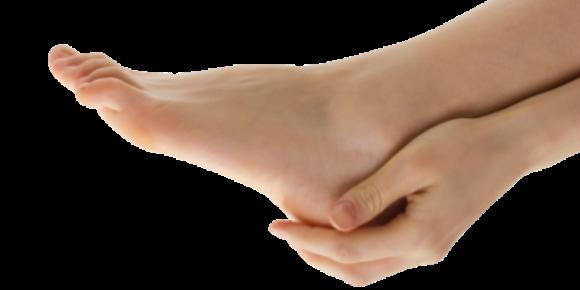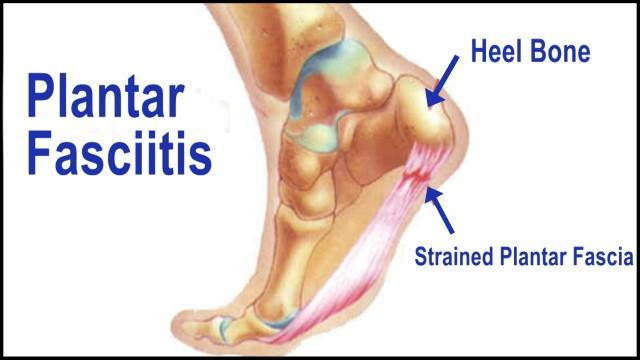
Plantar fasciitis is the inflammation of the fibrous band of tissue found on the bottom of the foot that supports your arch. This band starts at the heel bone (calcaneus) and widens as it reaches and attaches to the long bones at the ball of the foot (metatarsals).
When walking or running, each stride causes the plantar fascia to stretch and contract. This repeated  stretching and contracting can cause tiny tears (micro-tears) to develop in the plantar fascia. These tears can result in inflammation in the plantar fascia causing foot pain. The most common symptom is sharp pain in the foot, especially near the heel when rising in the morning. However, standing after long periods of inactivity or pain after exercise can also occur.
stretching and contracting can cause tiny tears (micro-tears) to develop in the plantar fascia. These tears can result in inflammation in the plantar fascia causing foot pain. The most common symptom is sharp pain in the foot, especially near the heel when rising in the morning. However, standing after long periods of inactivity or pain after exercise can also occur.
Although the cause of plantar fasciitis is not always clear, there are some factors that put you at an increased risk for developing the condition.
1. Excessive foot pronation or rolling in of your foot. A person who pronates too much puts extra pressure on the inner foot, which can strain the plantar fascia.
2. High arches. Since the plantar fascia supports the arch of your foot, having high arches can put extra strain on the tissue.
3. Tight Achilles tendons. When the Achilles tendon is tight, the ankle has a limited range of motion, and it is difficult to fully flex the foot, which may eventually lead to tight plantar fascia. One study estimates that nearly 4 out of 5 people with plantar fasciitis also have a tight Achilles tendon.
4. Different leg lengths. When a person has one leg longer than the other, the plantar fascia and other soft tissues of the foot are stressed asymmetrically and may have to work harder to absorb shocks.
5. Obesity. Being overweight puts extra pressure on the plantar fascia.
6. Prolonged standing or walking. Extended periods of standing or walking can strain the tissue. It needs time to rest and recover.
7. Inactivity. When the foot is at rest the plantar fascia is shortened and can become less flexible. Regular intervals of activity can help keep it strong and supple.
8. Running. Jogging just a few miles forces the plantar fascia to stretch and contract several thousand times. If the fascia is inflamed or experiencing micro-tears with each step, then running will cause pain.
9. Training errors. Over-training or excessive, sudden increases in training (especially increases in running mileage, speed work, or hill running) may strain the plantar fascia.
Chiropractic can be part of your healing, if you suffer from plantar fasciitis. Adjustments of the foot and/or ankle can help align the structures of the foot for optimal function. Specific Achilles tendon and calf stretches, foot and ankle range of motion evaluation and ultrasound treatments can also prove beneficial.
Source: www.sports-health.com
